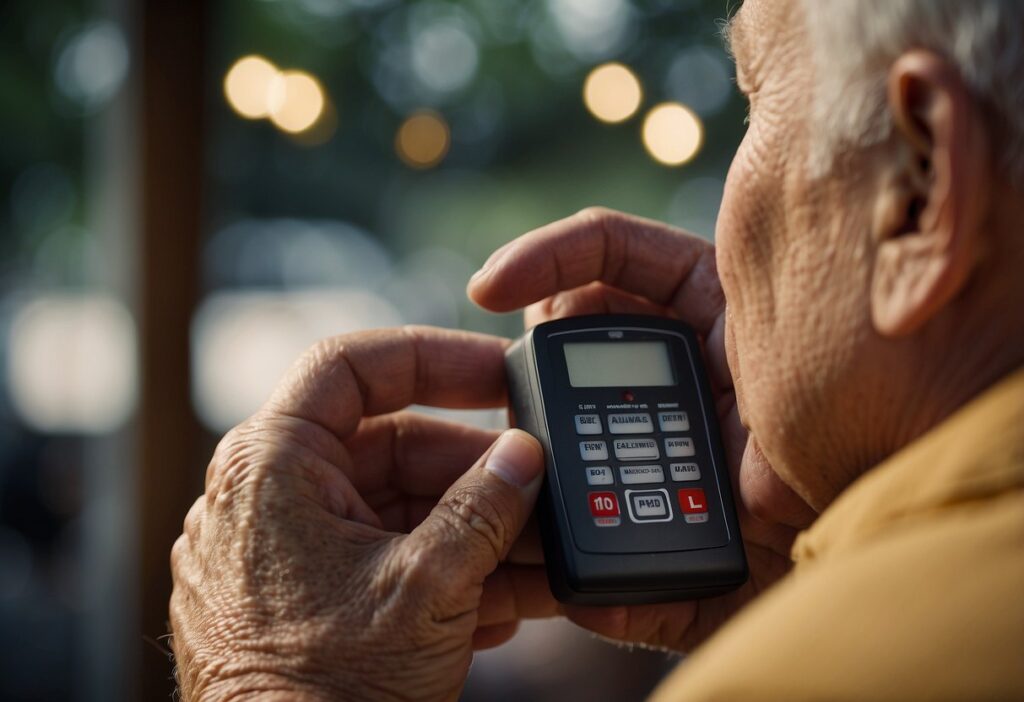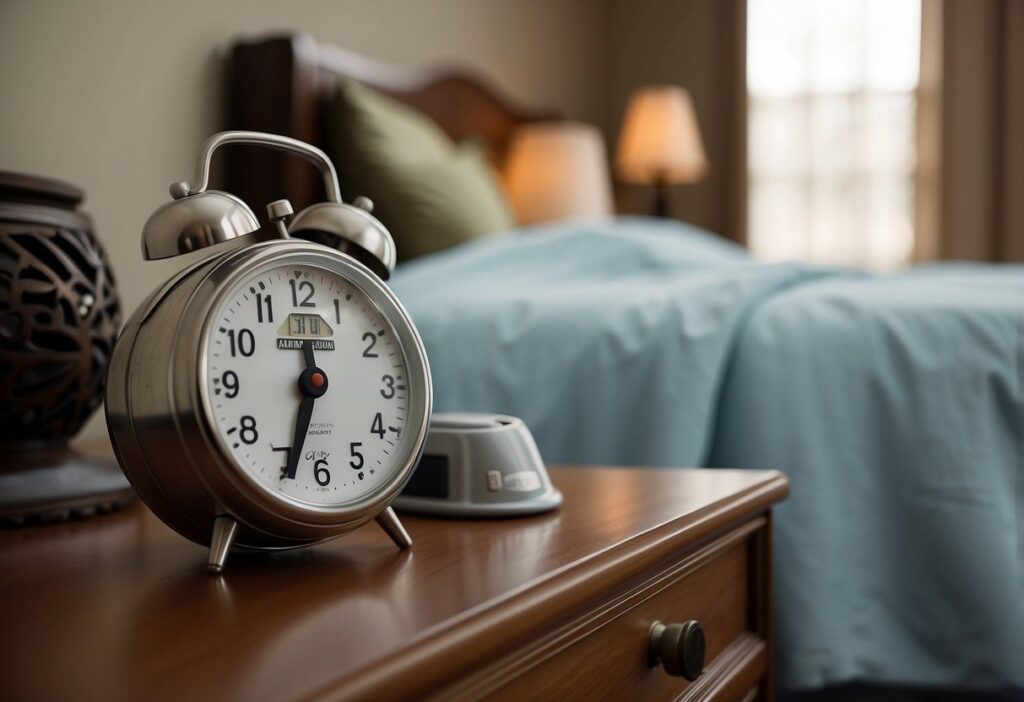
Ensuring the safety and well-being of seniors is a priority for many families. Personal alarms offer a practical solution by providing an immediate way to call for help in emergency situations, enhancing safety and peace of mind. These devices are designed to alert caregivers or emergency services at the press of a button, allowing seniors to maintain their independence while ensuring timely assistance when needed.
As seniors age, the risk of falls and medical emergencies increases. Personal alarms serve as a crucial tool in mitigating these risks, offering reassurance not only to seniors but also to their loved ones. With features like emergency call buttons and GPS tracking, personal alarms help ensure that help is always just a moment away, whether at home or on the go.
By integrating personal alarms into daily life, seniors can confidently live independently while knowing that support is readily accessible. The simplicity and reliability of these devices make them an indispensable part of a comprehensive safety plan for elderly individuals.
Understanding Personal Alarms and Their Key Features

Personal alarms for seniors play a vital role in ensuring their safety and peace of mind. This section will delve into the types of personal alarms available, the critical features that contribute to their functionality, and technological advancements enhancing their effectiveness.
Types of Personal Alarms
Wearable Personal Alarms Wearable personal alarms, such as pendants or wristbands, are designed for convenience and ease of use. Seniors can carry these devices with them, enabling quick access in an emergency.
Home-Based Personal Alarms
These alarms are primarily used within the home. They often come with base units connected to emergency response centres and can be triggered by pressing a button on a remote device.
Mobile Personal Alarms
Mobile personal alarms offer flexibility and protection on the go. They often include GPS tracking to help locate the individual quickly, which is essential for those with dementia or memory issues.
Critical Features for Ensuring Safety
Fall Detection Many personal alarms incorporate fall detection technology, which automatically alerts emergency contacts if a fall is detected. This feature is crucial in preventing prolonged periods without assistance.
Two-Way Communication
This feature allows the user to communicate directly with emergency responders or family members through the alarm device, providing reassurance and clarity during emergencies.
Battery Life A long battery life is essential to ensure the alarm remains operational at all times. Some devices offer rechargeable batteries or convenient charging options like USB or docking stations.
Range
The effective range of a personal alarm, particularly home-based ones, ensures that the device can maintain communication with its base unit throughout the entire home and even in the yard.
Technological Advancements in Alarms
GPS Tracking Advanced personal alarms include GPS tracking, which helps locate the user quickly in the event of an emergency, particularly useful for mobile alarms.
Smartphone Integration
Modern alarms can sync with smartphones, enabling caregivers to monitor the user’s status and receive alerts instantly.
Enhanced Sensory Detection
Some alarms feature multiple detectors, such as smoke or carbon monoxide alarms, adding extra layers of safety beyond medical emergencies.
Loud Noise Detectors
Advanced models may include loud noise detectors to alert caregivers or emergency services if loud sounds like cries for help are detected.
By incorporating these features, personal alarms significantly enhance the safety and peace of mind for seniors, ensuring help is always within reach.
Benefits of Personal Alarms for Seniors
Personal alarms offer numerous advantages for elderly individuals by promoting independence, enhancing security, and providing essential support for their families and caregivers.
Promoting Independence and Confidence
Personal alarms help seniors maintain their independence. The ability to call for help at any time increases their confidence in continuing daily activities without constant supervision. This fosters a sense of autonomy.
With features like fall detection and GPS tracking, seniors gain reassurance. These tools ensure that they can receive assistance even in situations where they may be unable to press the button themselves.
The effect on well-being is notable, as the presence of a personal alarm reduces anxiety. Seniors feel more secure in their homes, knowing help is just a button press away.
Enhanced Security and Emergency Response
Personal alarms provide a reliable emergency response system. In the event of a fall, sudden illness, or other emergencies, seniors can access immediate assistance.
Many personal alarms notify multiple contacts, such as family members, caregivers, or emergency services. This layered response ensures that help arrives quickly and effectively.
Advanced features, such as medical alert smartwatches, offer additional security. These devices can monitor health indicators and automatically alert responders to potential issues, ensuring the well-being of the user at all times.
Support for Family Members and Caregivers
For family members and caregivers, personal alarms offer significant support. These devices ease the burden of constant monitoring, providing peace of mind that the elderly individual is safe and can summon help if needed.
Caregivers benefit from the reassurance that comes from knowing their loved ones are secure. In emergencies, personal alarms ensure caregivers are alerted promptly, reducing response times and improving outcomes.
This support system allows for better management of caregiving tasks. With a personal alarm in place, caregivers can balance their responsibilities more efficiently, knowing their loved one’s safety is prioritized.
Practical Considerations and Accessibility
When selecting a personal alarm for seniors, practical aspects such as ease of use, cost, and customization are vital. Ensuring the device meets individual needs enhances personal safety and provides peace of mind.
Ease of Use and Accessibility for Seniors
Personal alarms should be intuitive and straightforward. Seniors may struggle with complex technology, so it’s crucial that the alarm is easy to operate, with clear buttons and simple instructions.
Voice activation and touchscreen interfaces can further enhance usability. Devices like medical alert smartwatches offer features like fall detection and location tracking, which add layers of security and ease of mind.
Accessibility features such as large buttons, audible alerts, and neck pendants or bracelets options should be considered to match seniors’ preferences and physical capabilities.
Cost and Subscription Models
Cost is a significant factor in choosing the right personal alarm. Initial prices can vary widely, from under $100 to several hundred dollars, depending on features and brand reputation.
Many personal alarms come with ongoing subscription fees for monitoring services, which can add up over time.
VAT relief might be available for eligible seniors, making devices more affordable. It’s essential to weigh the subscription costs against the alarm’s benefits to ensure it fits within your budget.
Customizing Personal Alarms to Individual Needs
Customization options can make a substantial difference in the efficacy of a personal alarm. Consider the specific needs of the senior, such as medical conditions, mobility levels, and lifestyle preferences.
Features like GPS tracking for active seniors who enjoy outdoor activities or fall detection for those with mobility issues can be particularly beneficial.
Some personal alarms allow for emergency contact customization, letting you preprogram numbers of family members, neighbours, or caregivers, ensuring swift and reliable assistance when needed.
Ensuring that the device’s design, whether it’s a bracelet, pendant, or smartwatch, aligns with the senior’s comfort and daily routine will make the device more likely to be used reliably.
Conclusion
Personal alarms play a vital role in ensuring the safety and well-being of seniors.
These devices allow seniors to summon help quickly in case of emergencies, providing peace of mind for both the users and their families.
When choosing a personal alarm, consider factors such as ease of use, reliability, and specific features like fall detection or GPS tracking.
A reputable provider is crucial to ensure quality service and support.
Evaluating your loved one’s specific needs will help you select the most appropriate device.
Personal alarms offer increased independence, enabling seniors to live at home safely for longer periods.
Investing in a personal alarm is a proactive step towards enhanced security and support.
–



